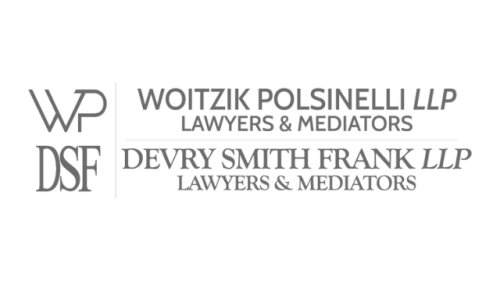Best Franchising Lawyers in Canada
Share your needs with us, get contacted by law firms.
Free. Takes 2 min.
Or refine your search by selecting a city:
List of the best lawyers in Canada
About Franchising Law in Canada
Franchising in Canada is a dynamic and integral part of the Canadian economy, allowing businesses to grow and expand by leveraging established brands and business models. A franchise typically involves a franchisor granting a franchisee the rights to operate under the franchisor’s business name, using their system and trademark, in exchange for a fee. The Canadian franchising landscape is governed by both federal and provincial laws, with specific franchising statutes existing in several provinces. These laws are designed to protect all parties involved and ensure that franchises operate fairly and transparently.
Why You May Need a Lawyer
Engaging a lawyer experienced in franchising is often crucial for both franchisors and franchisees. Some common situations where legal advice might be necessary include:
- Reviewing and negotiating franchise agreements to ensure they are fair and lawful.
- Understanding disclosure obligations as required by provincial laws before entering into a franchise agreement.
- Resolving disputes between franchisors and franchisees, which can include termination issues, alleged breaches, or contract enforcement.
- Guidance on compliance with applicable laws and regulations to prevent legal penalties.
- Assisting with the transfer or sale of a franchise, including due diligence and the drafting of necessary documents.
Local Laws Overview
Franchising in Canada is primarily regulated at the provincial level, with specific laws in provinces such as Ontario, British Columbia, Alberta, and others. Key aspects of these laws include:
- Disclosure Requirements: Franchisors must provide a comprehensive disclosure document to potential franchisees before any agreements are signed. This document includes financial statements, history, and details of the franchised system.
- Fair Practice: Regulations often mandate fair dealings between franchisors and franchisees, ensuring that neither party engages in conduct that is unfair or coercive.
- Right to Associate: Franchisees generally have the right to associate freely with other franchisees and form or join an organization.
- Good Faith and Fair Dealing: Many provinces require both parties to act in good faith and engage in fair dealing while executing their franchise agreements.
Frequently Asked Questions
What is the average cost of starting a franchise in Canada?
The cost varies significantly based on the franchise type and brand, ranging from less than $10,000 to over $1 million.
Are there any ongoing fees I need to be aware of?
Typically, franchisees pay ongoing fees, such as royalties and marketing contributions, which are outlined in the franchise agreement.
What is a Franchise Disclosure Document (FDD)?
The FDD provides crucial information to potential franchisees about the franchised business, legal obligations, and financial details, necessary for informed decision-making.
How do Canadian franchising laws protect franchisees?
Laws ensure that franchisees receive full disclosure before signing agreements and provide legal frameworks for dispute resolution and fair dealing.
Can a franchisor terminate a franchise agreement at will?
No, termination typically must be for cause and follow the stipulations outlined in the franchise agreement, respecting all legal provisions.
What should I do if I receive a disclosure document?
Consult with a franchise lawyer to review and understand the terms, potential risks, and obligations within the document.
What are the steps to take if I want to sell my franchise?
Notify your franchisor, review any transfer conditions in your franchise agreement, and seek legal advice for contract and due diligence support.
How long does a typical franchise agreement last?
Franchise agreements generally last between five to twenty years, but the duration varies based on the franchise and agreement specifics.
Do franchisees own the property their franchise is on?
It depends. Some franchises require leasing arrangements or purchasing real estate separately, outlined in the franchise agreement.
What should I do if I have a dispute with my franchisor?
Contact a lawyer experienced in franchising disputes to explore mediation, arbitration, or appropriate legal action based on your situation.
Additional Resources
Consider consulting the following resources for further information on franchising in Canada:
- The Canadian Franchise Association (CFA) offers a wealth of information and support for franchisors and franchisees.
- Government websites, such as the Corporations Canada, provide guidance on federal regulations affecting franchises.
- Provincial regulatory bodies in provinces like Ontario or Alberta have detailed insights into local franchising laws.
Next Steps
If you require legal assistance in franchising, consider the following steps:
- Consult with a lawyer who specializes in franchising law to discuss your specific needs.
- Prepare all relevant documents, such as your franchise agreement and any correspondence or records related to your franchise.
- Research and choose a law firm or attorney with a proven track record in resolving franchising issues successfully.
- Arrange an initial consultation to outline your concerns and understand the legal options available.
Lawzana helps you find the best lawyers and law firms in Canada through a curated and pre-screened list of qualified legal professionals. Our platform offers rankings and detailed profiles of attorneys and law firms, allowing you to compare based on practice areas, including Franchising, experience, and client feedback.
Each profile includes a description of the firm's areas of practice, client reviews, team members and partners, year of establishment, spoken languages, office locations, contact information, social media presence, and any published articles or resources. Most firms on our platform speak English and are experienced in both local and international legal matters.
Get a quote from top-rated law firms in Canada — quickly, securely, and without unnecessary hassle.
Disclaimer:
The information provided on this page is for general informational purposes only and does not constitute legal advice. While we strive to ensure the accuracy and relevance of the content, legal information may change over time, and interpretations of the law can vary. You should always consult with a qualified legal professional for advice specific to your situation.
We disclaim all liability for actions taken or not taken based on the content of this page. If you believe any information is incorrect or outdated, please contact us, and we will review and update it where appropriate.
Browse franchising law firms by city in Canada
Refine your search by selecting a city.













